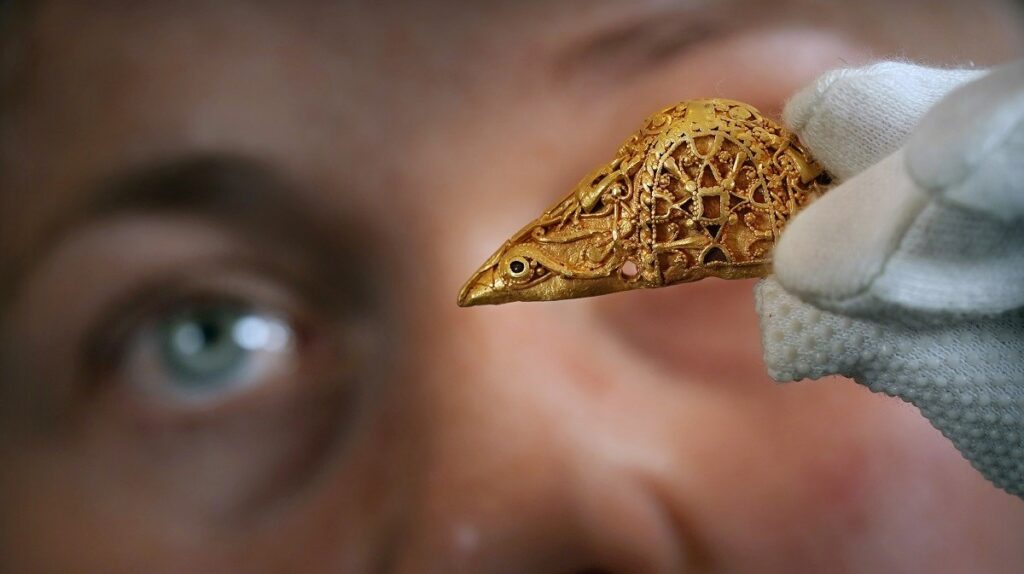NATIONAL Museums Scotland (NMS) has acquired an extremely rare gold sword pommel, created around 700AD.
Discovered in Stirlingshire, the object is one of the first of its kind found in Scotland.
It has been allocated to the Museums by the King’s and Lord Treasurer’s Remembrancer following the recommendation of the Scottish Archaeological Finds Allocation Panel.

The pommel is a decorative fitting that would have capped the top of a sword hilt made over 1,000 years ago.
Crafted in solid gold, the object is encrusted with garnets and intricate goldwork.
NMS say the decoration is highly symbolic, featuring religious motifs and fantastical creatures.
Dr Alice Blackwell, Senior Curator of Medieval Archaeology and History at NMS, said: “Goldwork from this period is virtually unknown from anywhere in the UK and we are delighted to secure the Stirling Pommel for Scotland’s national collections.
“It is a hugely significant archaeological find, revealing more about this fascinating period in the history of northern Britain and representing the spectacular skill and craftsmanship of the period.”
The discovery was made near Blair Drummond in Scotland, which NMS says adds significantly to its archaeological value, affirming important cultural, political and artistic interactions within northern Britain.
The pommel was discovered by a metal detector and declared to the Treasure Trove unit, in accordance with Scots Law.
It was subsequently allocated to NMS by the Scottish Archaeological Finds Allocation Panel (SAFAP).
John Logue, King’s and Lord Treasurer’s Remembrancer, said: “This discovery highlights the positive work done by the Treasure Trove Unit to decide upon the preservation of rare items for the nation.”

